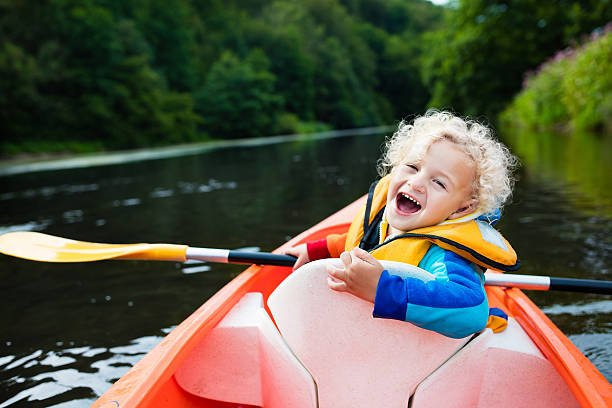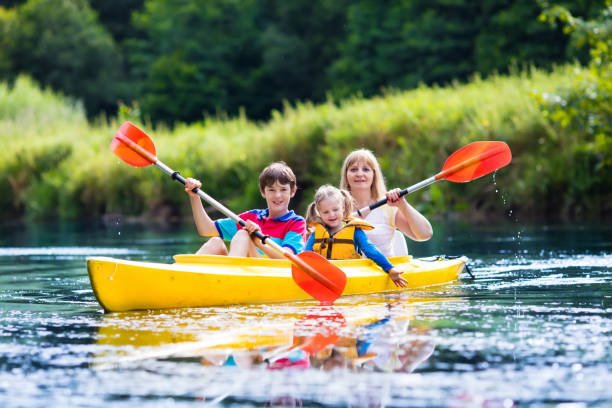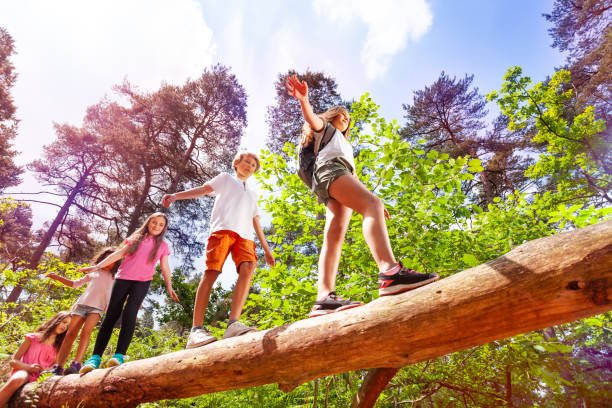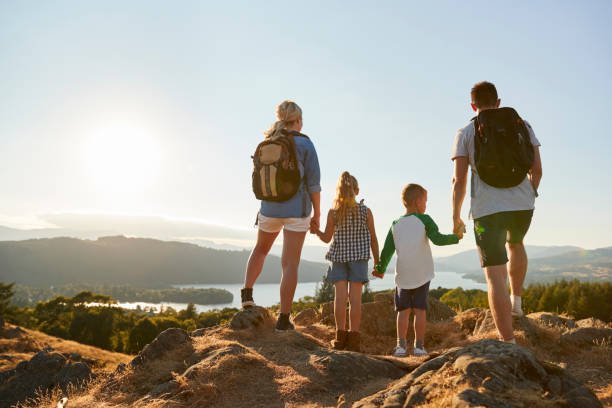Contents
- 1 Introduction to Camping Safety Tips for Kids
- 1.1 Choosing the Right Campsite
- 1.2 Packing Essentials
- 1.3 Setting Up Camp
- 1.4 Staying Hydrated and Well-Nourished
- 1.5 Wildlife Awareness
- 1.6 Supervision and Boundaries
- 1.7 Teaching Fire Safety
- 1.8 Navigating Trails Safely
- 1.9 Emergency Preparedness
- 1.10 Nighttime Safety Measures
- 1.11 Water Safety
- 1.12 Proper Waste Disposal
- 1.13 Weather Awareness
- 2 Conclusion
- 3 FAQs
Introduction to Camping Safety Tips for Kids
Camping is a wonderful way for families to bond, explore nature, and create lasting memories. However, ensuring the safety of children during camping trips is paramount. From choosing the right campsite to teaching essential survival skills, here are some crucial tips to keep in mind when camping with kids. Camping provides an excellent opportunity for children to disconnect from screens, connect with nature, and learn valuable life skills. However, it also comes with its own set of challenges and risks. By following proper safety protocols, parents can ensure a fun and memorable camping experience for the whole family. Here we discuss some tips for safety for kids:

Choosing the Right Campsite
Selecting the perfect campsite is the first step towards a safe camping adventure. Look for a location that is suitable for children, with easy access to amenities such as bathrooms and potable water. Additionally, consider factors such as terrain, weather conditions, and proximity to emergency services.
Packing Essentials
When packing for a camping trip with kids, it’s essential to be prepared for any situation. Make sure to pack appropriate clothing and footwear for various weather conditions. Additionally, stock up on essentials such as a first aid kit, insect repellent, sunscreen, and hats to protect against the sun’s harmful rays.
Setting Up Camp
Once you arrive at the campsite, take the time to set up camp safely. Ensure that tents are pitched securely and away from potential hazards such as cliffs or bodies of water. When building a campfire, follow proper guidelines for fire safety and always supervise children around open flames.
Staying Hydrated and Well-Nourished
Proper hydration and nutrition are essential for children, especially when spending time outdoors. Encourage kids to drink plenty of water throughout the day and provide healthy snacks to keep energy levels up.
Wildlife Awareness
Teach children about the wildlife they may encounter during camping trips and how to respect their habitats. Avoid leaving food out in the open, and store all food items securely to prevent attracting animals to the campsite.
Supervision and Boundaries
Establish clear rules and boundaries for children to follow while camping, including staying within sight and asking for permission before exploring. Assign designated play areas and teach kids to recognize potential dangers in the wilderness.
Teaching Fire Safety
Educate children about the dangers of playing with matches and lighters and teach them proper fire safety techniques. Show them how to safely extinguish a campfire and never leave it unattended.
Navigating Trails Safely
When hiking or exploring nature trails, always stay on marked paths and supervise children closely. Implement a buddy system to ensure that no one gets lost, and teach kids how to use a map and compass for navigation.
Emergency Preparedness
Prepare for emergencies by creating a detailed emergency plan and familiarizing children with emergency contact information. Pack a fully stocked first aid kit and teach kids basic first aid skills such as treating cuts and scrapes.
Nighttime Safety Measures
After dark, visibility decreases, increasing the risk of accidents. Provide children with flashlights or headlamps and teach them how to use them safely. Ensure that sleeping arrangements are secure and comfortable to prevent falls or injuries.
Water Safety
If camping near bodies of water, such as lakes or rivers, practice water safety at all times. Supervise children closely while swimming and ensure that they wear life jackets when boating or participating in water activities.
Proper Waste Disposal
Follow Leave No Trace principles to minimize environmental impact and keep the campsite clean. Dispose of waste properly, including food scraps, packaging, and human waste, to prevent contamination and attract wildlife.
Weather Awareness
Stay informed about weather forecasts and be prepared for sudden changes in weather conditions. Pack appropriate clothing and gear for various weather scenarios and seek shelter indoors or in a sturdy structure during storms.

Conclusion
Camping with kids can be a rewarding experience, but it requires careful planning and preparation. By following these safety tips, parents can ensure a fun and enjoyable outdoor adventure while keeping their children safe from harm.
FAQs
How old should children be before going camping?
While there’s no specific age requirement, it’s essential to consider each child’s individual needs and abilities. Start with short camping trips close to home and gradually increase the duration and distance as children grow older.
What should I do if my child gets lost during a camping trip?
Remain calm and stay in the area where your child was last seen. Alert park rangers or campground staff immediately and provide them with a detailed description of your child’s appearance and last-known location.
How can I protect my child from insect bites while camping?
Use insect repellent containing DEET or picaridin, dress children in long sleeves and pants, and avoid scented lotions or perfumes that may attract insects. Check for ticks regularly and remove them promptly if found.
Is it safe to let children explore nature on their own during camping trips?
While it’s essential to encourage independence and exploration, children should always be supervised, especially in unfamiliar or remote environments. Establish clear boundaries and check in with them regularly.
What should I do if my child encounters wildlife while camping?
Teach children to remain calm and back away slowly without turning their backs on the animal. Do not approach or attempt to feed wild animals, and keep all food items stored securely to avoid attracting them to the campsite.


